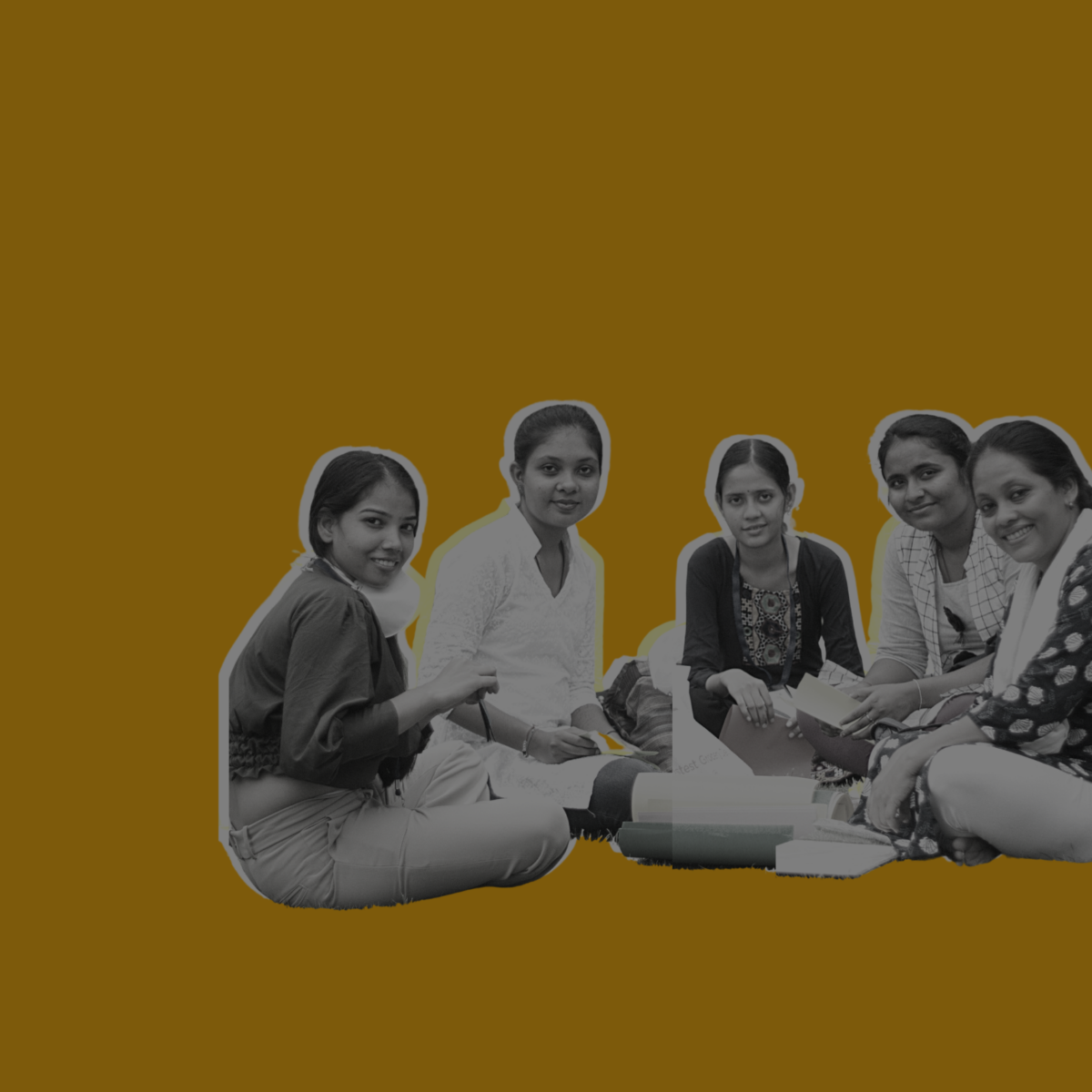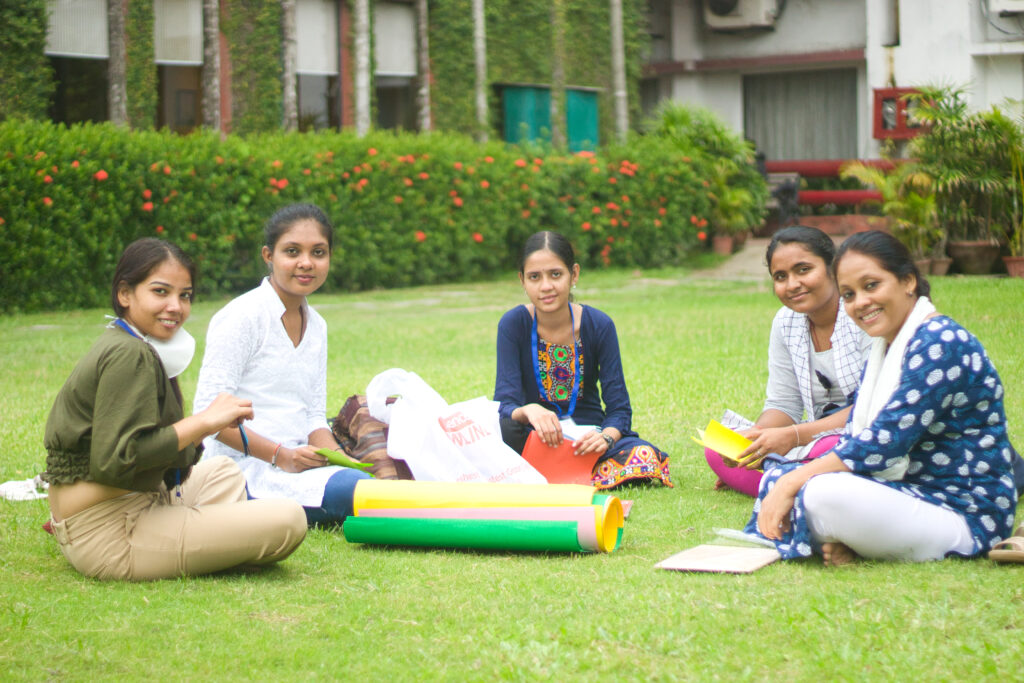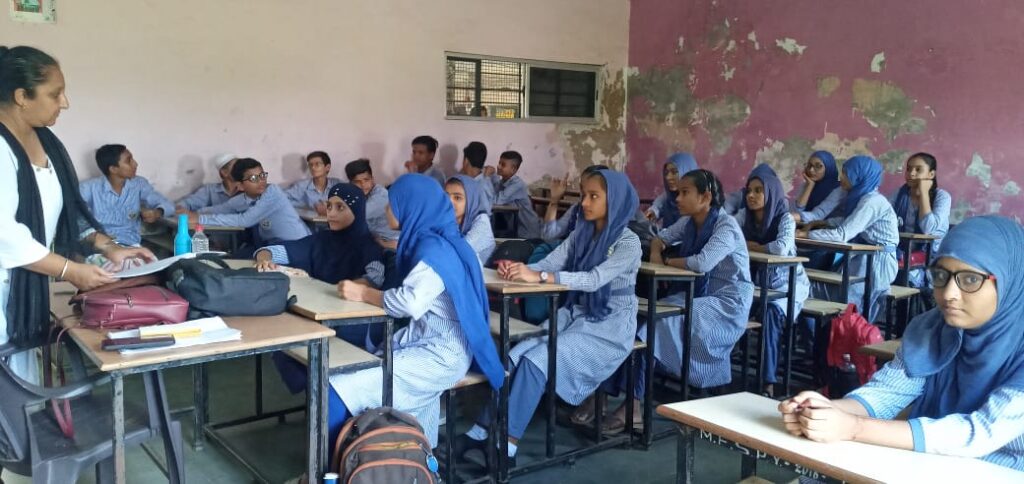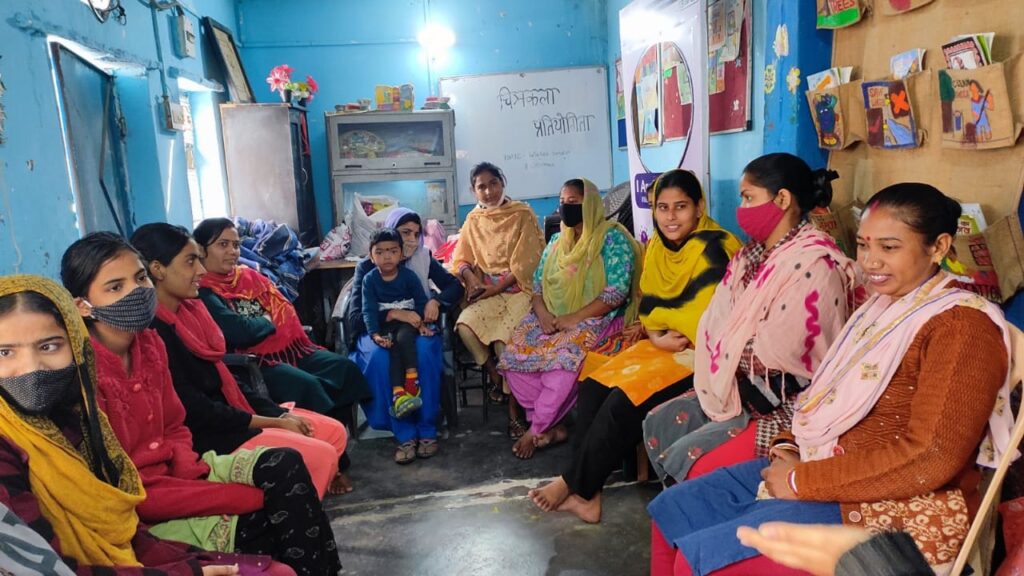
“I did not know that I could do something so big."
This is what girl leadership for climate justice looks like.
By Kendra Nicolai, Director of Operations
November 18, 2022
Reading Time: 5 minutes“I did not know that I could do something so big. I decided to try something in my village, and it turned out to be a very big program.” Beauti shares her experience with the group of Shadhika Climate Fellows about the initiative in her village to gain access to clean drinking water. “Years ago, my village used to get water from the nearby pond. Until now, people walk far to get water and wait in long lines. If they miss the timing, they won’t have any water for the day.”
Beauti is 1 of 4 Climate Fellows and Shadhika Alum, who have participated in the 2nd phase of Shadhika’s Climate Change Initiative, supported by the Posner Center. The Fellows have spent nearly 2 years learning about climate justice as a global issue and how it intersects with women’s and girls’ rights in India.
Climate crisis disproportionately affects young women and girls, with around 141 million school-aged girls estimated to be vulnerable to climate change effects by 2025 (Malala Fund Girls’ Education and Climate Challenges Index). This is why Shadhika has intentionally invested in girl-led climate action. Additionally, each Fellow has been working on a Climate Action Project and is supported by a local mentor to help conceptualize and implement their project.
Through Beauti’s Climate Action Project and with the help of her local community, Beauti’s village is now getting irrigated clean drinking water. Soon there will be tap connections in each household. “Now my mother can save time,” says Beauti. There is less fear about the basic need for water and now time and energy can be spent elsewhere.
This work is crucial now more than ever. “According to a non-profit named Water, women around the world spend a collective 200 million hours collecting water. In addition to the time spent collecting water, millions may also spend significant amounts of time finding a place to relieve themselves. This makes up an additional 266 million hours lost each day.” (Down to Earth, 2021)
The Climate Change Fellowship gave this group of Shadhika Alum the opportunity to initiate and engage in climate justice work both at the local and national levels.

Joining the Partners and Shadhika Scholars at the 2022 Leaders for Change Summit, the Climate Fellows lead a session on climate change and how it impacts women and girls in India. They led the group of Scholars through activities about climate justice, diversity, solidarity, and the environment. The Scholars enjoyed a break from being inside and excitedly engaged in this important conversation with their peers and the Climate Fellows.
“The moment felt memorable, I felt very prepared and wished the workshop was a bit earlier in the day and that they could have made a bigger group. When I spoke, I felt others were inspired too,” says Saba, a Shadhika Climate Fellow who led a group of Scholars through an activity about diversity in nature.
Even though the Fellowship is ending, the group has plans to continue the work.
Saba has created a “Water group” of like-minded individuals who will campaign on water conservation nationwide. Priya has created two community groups that will be learning how to compost and how to be creative with kitchen waste.
Nitika recently won 1st place in an intercity competition at her college after suggesting that her college engage in the topic of a “plastic-free generation” for a poster competition and rally. And as mentioned above, Beauti helped her entire village to get access to clean drinking water.


We know that this climate justice work is the tip of the iceberg of a foundation of climate change-related issues facing young people today. As Asheer Kandhari, an 18-year-old climate activist stated at the Shadhika Climate Fellowship Celebration, “I don’t think I have a choice at this point, If I want a healthy future for myself and my family, for potentially my kids and other people, I have to use my voice, I have to use my agency. It is very simple.”
80% of people displaced by climate change are women, according to a UN report. When climate change exacerbated the violence and vulnerabilities faced by women and girls, climate action desperately needs girl-led leadership. We are inspired by the Climate Fellows who embody this kind of leadership. We are inspired by the eagerness of the Climate Fellows to continue creating change in their own communities, knowing that this will inspire a groundswell of change in India and throughout the world.
Read the Shadhika Field Notes on how the Climate Change Fellowship started here.
